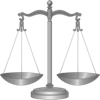VirnetX announced that at a pre-trial scheduling conference, jury selection in its trial against Apple will begin on Oct. 29, with a jury trial commencing on Oct. 31, reports “MacNN” (www.macnn.com).
Read more: http://www.electronista.com/articles/12/09/25/remaining.defendants.scheduled.for.trial.in.early.2013/#ixzz27UgGrREcVirnetX Holding Corp. (www.virnetx.com), an Internet security software and technology company, alleges that Applehas engaged in unfair trade practices by the importation, sale for importation, and sale after importation of certain devices with secure communication capabilities that infringe one or more claims of VirnetX’s U.S. The accused products include the latest iPhones, iPads, iPods, and Macintosh computers.
The complaint was filed jointly with Science Applications International Corp. to remove a procedural standing issue that was identified as the reason for dismissal of VirnetX’s previous complaint. VirnetX had acquired a portion of its portfolio from SAIC in 2006.
VirnetX has requested that the International Trade Commission institute an investigation into Apple’s allegedly infringing imports and ultimately issue an exclusion order to bar importation of those Apple products. VirnetX also seeks a cease and desist order to bar further sales and other domestic commercial activities of infringing Apple products that have already been imported.
In November 2011 VirnetX filed a lawsuit against Apple in the US District Court in the Eastern District of Texas, alleging that Apple violated its US patent (number 7188180) for “method for establishing secure communication link between computers for virtual private network.” The invention describes a technique “for establishing a secure communication link between a first computer and a second computer over a computer network.”
This is accomplished by establishing a “secure communication mode of communication” at a first computer without the need for the user to enter any cryptographic information.” VirnetX’s claims the iPhone 4S, iPhone 4, iPad 2, iPod touch, and Macs that run Mac OS X 10.7 (“Lion”) infringe up the patent, which was published in 2007.


